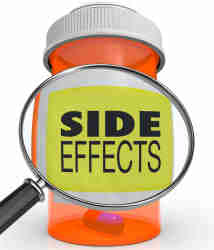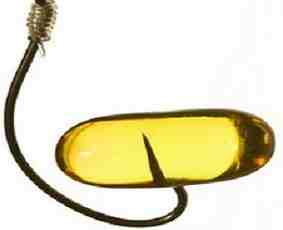Using Omega 3 to Reduce Inflammation
Inflammation occurs when our body gives off chemicals that respond to injury. Inflammation is also experienced by those who have heart disease and auto-immune diseases. When inflammation is chronic, it is our body having an over-reaction to something and attacking itself for no apparent reason. Many people need to turn to powerful anti-inflammatory medications or steroids to halt the process. Researchers are now finding a way of reducing inflammation with Omega 3.
 Studies of Omega 3 and its role in inflammation, show that it has capabilities to reduce that inflammation. Since Omega 3 has a role in neuro-transmissions, it tells the body to release chemicals that stop inflammation and other chemicals that keep inflammation from coming back.
Studies of Omega 3 and its role in inflammation, show that it has capabilities to reduce that inflammation. Since Omega 3 has a role in neuro-transmissions, it tells the body to release chemicals that stop inflammation and other chemicals that keep inflammation from coming back.
People who have enough Omega 3 in their system show signs of these anti-inflammatory chemicals.
Studies are ongoing and haven’t quite found the answer why, but researchers found that when they gave study subjects higher dosages of Omega 3, an extra chemical known as resolvin helped reduce inflammation and helped blood vessels heal after open heart surgery.
In auto-immune disorders, the body attacks itself instead of an illness or injury attacking it. This causes high levels of inflammation anywhere in the body. In a separate study of people with auto-immune disease, subjects were tested for Omega 3. The people who had enough Omega 3 in their system produced a powerful chemical known as polyunsaturated fatty acids or PUFA. This chemical blocked auto-immune responses by the body.
 Omega 3 Requirements for Inflammation
Omega 3 Requirements for Inflammation
The key to using Omega 3 to help reduce inflammation in the body is to eat a healthy diet with enough Omega 3 foods. Omega 3 foods include; fish, grass fed animal protein, flax seed and flax oil, soybeans, walnuts, and winter squash.
One healthy diet to follow is the Mediterranean diet that is full of nuts, olive oil, fish, and other high Omega 3 foods.
Another good diet to follow is a Japanese type diet. This includes large amounts of healthy fish. You can also take an Omega 3 supplement from 1,000mg to 3,000mg daily.
Omega 3 has been found most effective for inflammation at right around 3,000mg daily. This is the upper recommended limit, so it is important to consult a physician before taking Omega 3 for inflammation. It can have side-effects and a drug interaction with blood thinning medications. You can eat 2 to 3 servings of fish weekly and each serving is about 1.5 grams of Omega 3.
After cardiac surgery, doctors may prescribe up to 4,000mg of Omega 3 to promote healing and reduce inflammation around the heart. This must be monitored by a physician, especially if you are on a blood thinner. For those who do not have health conditions, there are usually no side-effects. Any reported side-effects only involve the digestive system and are alleviated if taken with food.
Some Omega 3 sources may cause allergic reactions, so use caution in choosing a source.
Some fish oil supplements can cause an allergic reaction in those allergic to fish and shellfish. Tree nut allergies cause an allergic reaction to sources made from walnuts. There are many sources so make sure to find the right one for you.
Conclusion
Studies show promising results in reducing inflammation with Omega 3 intake. Omega 3 causes the body to produce chemicals that tell the body to “turn off” the inflammatory process. This reduces the need for powerful anti-inflammatory medications and assists the body with healing. This has already been shown to be helpful in recovering from cardiac surgery. The best way for Omega 3 to help with inflammation is to make sure you are eating enough Omega 3 foods in your diet. You can also add an Omega 3 supplement to your daily routine safely with very few side-effects. Always speak with your physician about adding Omega 3 supplements and stay within the recommended guidelines. You may be able to say goodbye to chronic inflammation and benefit your body in many ways!

 Subscribe Now
Subscribe Now

 Diets have largely turned to mostly processed foods and carbohydrates. This in turn robs the nervous system and brain of needed nutrients to function properly. In addition, too many
Diets have largely turned to mostly processed foods and carbohydrates. This in turn robs the nervous system and brain of needed nutrients to function properly. In addition, too many  Inflammation
Inflammation It is recommended to eat at least 2 servings of wild caught cold water fish every week. Fish should be wild caught with the lowest mercury levels possible. Mercury prevents our body from absorbing Omega 3 properly. Eating too much Omega 6 also reduces the proper absorption of Omega 3. If your diet isn’t quite balanced enough, supplements are a good way to get enough Omega 3. If you choose to use an Omega 3 supplement, The American Heart Association recommends taking 1,000mg to 3,000 mg a day. There are some people that must take more than 3,000 mg of Omega 3 daily. Take such an amount only under the advice of a physician.
It is recommended to eat at least 2 servings of wild caught cold water fish every week. Fish should be wild caught with the lowest mercury levels possible. Mercury prevents our body from absorbing Omega 3 properly. Eating too much Omega 6 also reduces the proper absorption of Omega 3. If your diet isn’t quite balanced enough, supplements are a good way to get enough Omega 3. If you choose to use an Omega 3 supplement, The American Heart Association recommends taking 1,000mg to 3,000 mg a day. There are some people that must take more than 3,000 mg of Omega 3 daily. Take such an amount only under the advice of a physician.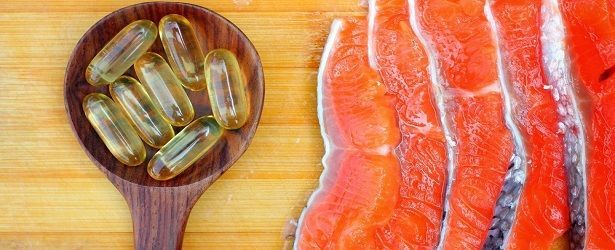
 Fish that swim and live in water high in PCB’s absorb the chemical into their bodies. Not all fish absorb it, but some have high levels. A good
Fish that swim and live in water high in PCB’s absorb the chemical into their bodies. Not all fish absorb it, but some have high levels. A good  Pollution is getting worse, and the environment contains synthetic chemicals in our water, air, and food. There are traces of chemicals in just about everything, everywhere, and it is almost impossible to remove them. Products must be sold as clean and pure as possible to protect you, the consumer.
Pollution is getting worse, and the environment contains synthetic chemicals in our water, air, and food. There are traces of chemicals in just about everything, everywhere, and it is almost impossible to remove them. Products must be sold as clean and pure as possible to protect you, the consumer.

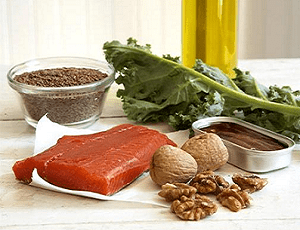 Men who eat a diet rich in Omega 3 have a lower incidence of; dementia, heart disease, cancer, high blood pressure, and even depression. Omega 3 can even help increase the metabolism and boost weight loss efforts. Memory is better and chances of getting
Men who eat a diet rich in Omega 3 have a lower incidence of; dementia, heart disease, cancer, high blood pressure, and even depression. Omega 3 can even help increase the metabolism and boost weight loss efforts. Memory is better and chances of getting 
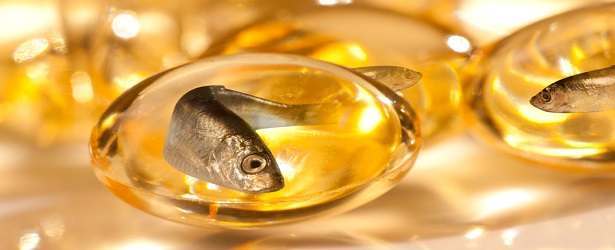
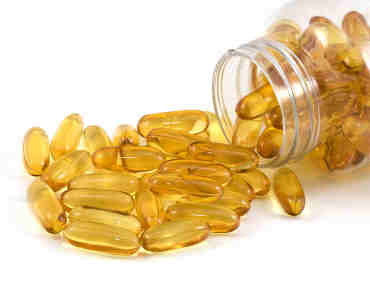 Some controversy have suggested that if fish oil supplements are made improperly, then they could be high in mercury. It depends on the type of fish the manufacturer uses as well as the manufacturing process. The process must clean toxins out of the fish oil, yet keep important nutrients intact. Of course, no fish oil supplement is completely mercury free. The best supplements have almost undetectable levels when the manufacturer cleanses the fish oil in the right manner.
Some controversy have suggested that if fish oil supplements are made improperly, then they could be high in mercury. It depends on the type of fish the manufacturer uses as well as the manufacturing process. The process must clean toxins out of the fish oil, yet keep important nutrients intact. Of course, no fish oil supplement is completely mercury free. The best supplements have almost undetectable levels when the manufacturer cleanses the fish oil in the right manner.
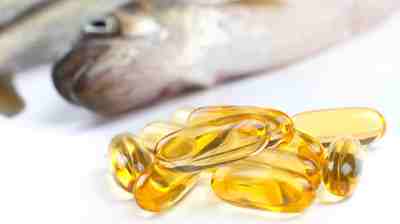 The point is that even if some mercury in fish oil is safe for consumption, that mercury can adversely effect how Omega 3 is processed and absorbed by the body. If you get a fish oil supplement higher in mercury, it will keep the body from getting the actual benefits of Omega 3 fatty acids. You will not be able to absorb the Omega 3. Eating fish high in mercury can even block the
The point is that even if some mercury in fish oil is safe for consumption, that mercury can adversely effect how Omega 3 is processed and absorbed by the body. If you get a fish oil supplement higher in mercury, it will keep the body from getting the actual benefits of Omega 3 fatty acids. You will not be able to absorb the Omega 3. Eating fish high in mercury can even block the 
 The symptoms of ADHD can actually overlap with a number of other conditions. These may not even be noticeable, and needs must be evaluated on behavior scales by a few different observers. Usually teachers, parents, and other caregivers fill out the scale forms and turn them into a Licensed Physician. The symptoms of ADHD can include:
The symptoms of ADHD can actually overlap with a number of other conditions. These may not even be noticeable, and needs must be evaluated on behavior scales by a few different observers. Usually teachers, parents, and other caregivers fill out the scale forms and turn them into a Licensed Physician. The symptoms of ADHD can include: Treatment, whatever type used, is important to reduce the discomfort of sufferers and those around them. It needs to focus on helping them learn to control increased energy levels, reduce movement, and hold conversations with others.
Treatment, whatever type used, is important to reduce the discomfort of sufferers and those around them. It needs to focus on helping them learn to control increased energy levels, reduce movement, and hold conversations with others. Omega 3 – Research has shown that almost half of kids in studies given Omega 3 fatty acid supplementation show reduced symptoms. It is thought that some cases of ADHD are due to a lack of EPA and
Omega 3 – Research has shown that almost half of kids in studies given Omega 3 fatty acid supplementation show reduced symptoms. It is thought that some cases of ADHD are due to a lack of EPA and 
 One very important point we cannot miss is that researchers are finding that Omega 3 Fatty Acids are a basic building block of brain cells. Kids need
One very important point we cannot miss is that researchers are finding that Omega 3 Fatty Acids are a basic building block of brain cells. Kids need  Best fish for kids are ones that swim in cold water and are wild caught. This includes;
Best fish for kids are ones that swim in cold water and are wild caught. This includes; 
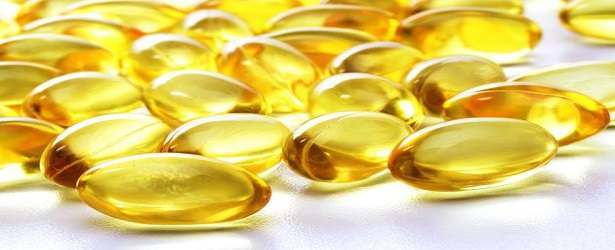
 Omega 3 fatty acids perform many functions in our body. They help our brain develop healthy cells, improve memory, and maintain our cognitive functions. Omega 3 also improves the health of our cardiovascular system, reduces inflammation, and helps us build new cells. The downside is our body cannot make Omega 3 on its own, and we need to get it from the food we eat. Adding to the issue is that our diets today are seriously lacking in
Omega 3 fatty acids perform many functions in our body. They help our brain develop healthy cells, improve memory, and maintain our cognitive functions. Omega 3 also improves the health of our cardiovascular system, reduces inflammation, and helps us build new cells. The downside is our body cannot make Omega 3 on its own, and we need to get it from the food we eat. Adding to the issue is that our diets today are seriously lacking in 

 Omega 3 fatty acids are found in a variety of foods from both meat and vegetarian sources including; flax, salmon, walnuts,
Omega 3 fatty acids are found in a variety of foods from both meat and vegetarian sources including; flax, salmon, walnuts, 
 When beef cows are fed only grains, they tend to produce 20 parts Omega 6 fatty acids and only 1 part Omega 3 fatty acids. As you can see above, this is too much Omega 6 and unhealthy for the human body. When animals graze on grass naturally, the Omega three ratio is 1 part Omega 3 to 1 part Omega 6. Humans also tend to eat more nuts, flax, seeds, and vegetables that contain higher amounts of Omega 3 fatty acids.
When beef cows are fed only grains, they tend to produce 20 parts Omega 6 fatty acids and only 1 part Omega 3 fatty acids. As you can see above, this is too much Omega 6 and unhealthy for the human body. When animals graze on grass naturally, the Omega three ratio is 1 part Omega 3 to 1 part Omega 6. Humans also tend to eat more nuts, flax, seeds, and vegetables that contain higher amounts of Omega 3 fatty acids. This means decreasing Omega 6 foods such as; animals fed on: grain diets, vegetable oils, sunflower seeds, margarine, sesame seeds, shortening and creamy salad dressing. These are all high in unhealthy fats and throw the Omega balance off.
This means decreasing Omega 6 foods such as; animals fed on: grain diets, vegetable oils, sunflower seeds, margarine, sesame seeds, shortening and creamy salad dressing. These are all high in unhealthy fats and throw the Omega balance off.

